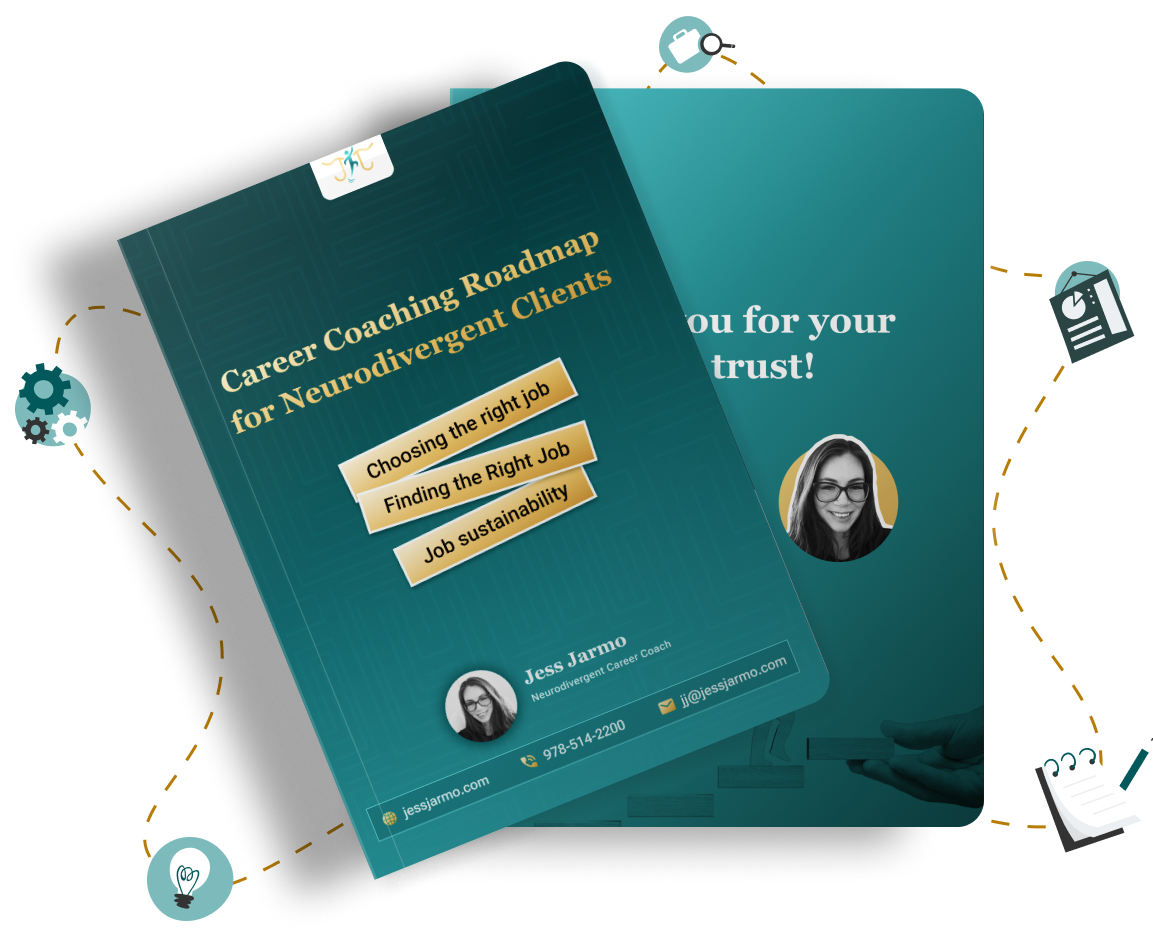

Table Of Content
Dyslexia, often misunderstood as a learning disability, is actually a different way of processing information. For professionals with dyslexia, navigating the workplace can present unique challenges, particularly in communication and performance. However, with the right support—specifically through dyslexia career coaching—individuals can overcome these challenges and thrive. Dyslexia career coaching offers strategies that tap into the strengths of neurodiverse employees, helping them enhance their communication skills, improve performance, and contribute effectively in a work environment.
As a neurodivergent career coach, I specialize in career guidance and support for individuals with dyslexia, ADHD, autism, and other forms of neurodiversity in the workplace. In this article, we will explore how dyslexia career coaching can significantly improve workplace communication and performance. We will also discuss practical solutions and strategies that benefit not only the individual but the entire organization.
Understanding Dyslexia in the Workplace
Dyslexia is a neurological difference that affects reading, writing, and spelling, but it doesn’t impact intelligence. According to the International Dyslexia Association, up to 15-20% of the population has some form of dyslexia. In the context of the workplace, individuals with dyslexia often struggle with tasks that involve written communication, such as emails, reports, and presentations. However, they often excel in other areas like problem-solving, creativity, and big-picture thinking.
Recognizing dyslexia as part of neurodiversity in the workplace is essential to creating inclusive and supportive environments. Neurodiverse employees bring unique perspectives that can lead to innovative solutions and enhance team dynamics. Through dyslexia career coaching, individuals can gain strategies tailored to their needs, empowering them to succeed in their roles and contribute positively to their organizations.
The Challenges of Dyslexia in the Workplace

For individuals with dyslexia, the workplace can present several challenges, particularly in communication and performance. Some common struggles include:
- Difficulty with written communication: Writing reports, emails, or even short messages can take significantly more time and effort for someone with dyslexia. Spelling and grammar issues might lead to miscommunication.
- Reading speed and comprehension: Dyslexic individuals may struggle to process large volumes of text, impacting their ability to meet deadlines or fully grasp complex instructions.
- Memory recall: Many people with dyslexia have difficulty with short-term memory, which can affect their ability to retain verbal instructions or remember details from meetings.
These challenges can lead to frustration, anxiety, and feelings of inadequacy, especially if the individual is not receiving the necessary support. However, dyslexia does not mean a lack of ability. With dyslexia workplace coaching, individuals can develop strategies to address these challenges and perform at their best.
How Dyslexia Career Coaching Helps Improve Communication
Effective communication is crucial for workplace success. Dyslexia career coaching helps individuals improve their communication skills by focusing on the following areas:
a. Developing Alternative Communication Strategies
Dyslexia career coaching encourages individuals to explore communication methods that work best for them. For example, instead of relying on written communication, employees might opt for verbal updates, use voice-to-text software, or collaborate in real-time using visual tools like mind maps. These alternatives reduce the pressure on written communication while ensuring that important information is conveyed clearly.
b. Organizing Thoughts and Ideas
One common issue for individuals with dyslexia is translating their ideas into coherent, structured writing. A dyslexia coach can work with individuals to develop techniques like outlining thoughts before writing, breaking tasks into manageable chunks, and using templates for frequent communication (e.g., reports or emails). These strategies make written tasks less daunting and improve the overall clarity of communication.
c. Leveraging Technology
There are numerous assistive technologies available that can aid workplace communication for individuals with dyslexia. For example, text-to-speech software can help with reading comprehension, while spell-checking and grammar tools assist in writing. Dyslexia career coaching helps individuals identify and incorporate these technologies into their daily workflows.
By focusing on these areas, career coaching can greatly improve workplace communication, helping individuals with dyslexia express their ideas and collaborate more effectively with colleagues.
Boosting Workplace Performance Through Dyslexia Career Coaching
While communication is a significant aspect of workplace performance, dyslexia career coaching also helps improve other areas, such as productivity, time management, and problem-solving.
a. Time Management Techniques
Dyslexic individuals often face difficulties with time management due to challenges with organization and memory. It teaches strategies like using visual schedules, setting timers, and breaking down projects into smaller steps. These techniques enable individuals to manage their time more effectively, meet deadlines, and reduce stress.
b. Focusing on Strengths
Dyslexia career coaching encourages individuals to leverage their strengths in the workplace. Many people with dyslexia are highly creative, innovative, and good at seeing the big picture. Coaches help individuals identify their unique talents and find roles or projects that align with those strengths, ultimately boosting their performance and job satisfaction.
c. Building Confidence
For many individuals with dyslexia, previous struggles with reading and writing may have impacted their confidence. Dyslexia career coaching focuses on rebuilding self-esteem and providing individuals with the tools to succeed. With increased confidence, employees are more likely to take on new challenges, participate in meetings, and take a proactive approach to their career development.
Creating a Supportive Work Environment

Organizations play a critical role in supporting neurodiverse employees. By fostering an inclusive environment, employers can enhance workplace communication and performance for individuals with dyslexia. Here are a few ways organizations can support dyslexic employees:
a. Provide Workplace Accommodations
Simple accommodations like offering extended deadlines, providing audio versions of documents, or allowing the use of assistive technologies can make a significant difference. These accommodations help employees with dyslexia perform at their best without feeling overwhelmed by their challenges.
b. Promote Awareness and Understanding
Workplace training programs on neurodiversity in the workplace can help colleagues and managers understand the unique challenges faced by dyslexic employees. By raising awareness, organizations can reduce stigma and create a more supportive environment.
c. Encourage Open Communication
Employees with dyslexia should feel comfortable discussing their needs with their managers. Encouraging open communication allows employees to ask for the support they need to succeed, whether it's additional time for a task or access to assistive tools.
Practical Strategies for Managers
Managers play a pivotal role in the success of dyslexic employees. Here are some strategies to ensure that neurodiverse team members are set up for success:
- Offer clear instructions: Breaking tasks down into smaller, manageable steps ensures clarity and prevents misunderstandings.
- Be patient and flexible: Allow extra time for tasks involving reading and writing, and offer alternative methods of communication when possible.
Provide regular feedback: Offering constructive, positive feedback helps build confidence and ensures that dyslexic employees are on track.
The Role of Dyslexia Career Coaching in Career Development
Dyslexia Career coaching isn’t just about overcoming challenges; it’s about helping individuals reach their full potential. From career exploration and planning to career transitions and advancement, coaching offers valuable tools that benefit both individuals and organizations.
a. Career Planning
For individuals with dyslexia, finding a career that aligns with their strengths is key. The coaching helps professionals identify roles that are best suited to their skills and abilities, ensuring a better fit and long-term career satisfaction.
b. Professional Development and Skill Building
Continuous learning is essential in today’s fast-paced work environment. Dyslexia career coaching supports professional development, helping individuals with dyslexia build new skills and stay competitive in the job market.
c. Career Transitions and Advancement
When it comes to career growth, it plays a crucial role in preparing individuals for transitions, such as moving into leadership roles or changing careers. Coaching provides the necessary support to navigate these changes confidently.
Conclusion
Dyslexia career coaching is a powerful tool that can significantly enhance workplace communication and performance for individuals with dyslexia. By focusing on practical strategies, leveraging technology, and building confidence, it enables professionals to overcome challenges and succeed in their careers. Moreover, organizations that foster an inclusive and supportive environment for neurodiverse employees benefit from increased innovation, creativity, and collaboration.
If you’re looking for more guidance on how to support dyslexia in the workplace, consider working with a neurodivergent career coach. Visit Jess Jarmo's Coaching Services for tailored career advice that helps neurodiverse professionals thrive.

